Jo Johnson: the inside story of Brexit and where it all went wrong
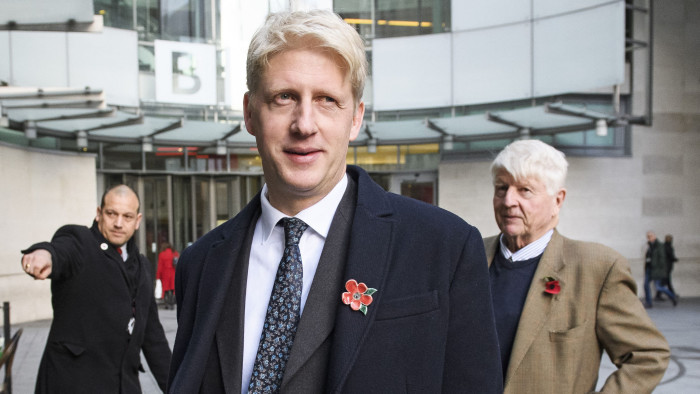
“Big decision. Let’s make it work.” The day after Britain voted to leave the European Union, I woke up determined to make a success of Brexit. I was surprised by how quickly I went to acceptance of the result, without passing through any of the prior stages of grief. That dawn tweet, which I sent at 6.08am while listening to Mishal Husain on the BBC, became my guiding principle over the next 28 months in government.
It was not a result I wanted. As universities and science minister, I had campaigned hard to remain, alongside students, academics and scientists. But I respected the democratic process — indeed, a majority in my own constituency, which includes the towns of Orpington and Biggin Hill, as well as a number of pretty villages in rolling fields on London’s border with Kent, had voted to leave — and I wanted to play a constructive part in making a go of it. The campaign had divided the country, the party and my own family. Now it was time to come together, suspend disbelief and move on in the great pragmatic tradition of the country.
In one crucial respect, even though I hadn’t advocated Brexit, I perhaps felt even more conscious of my responsibility than some of my colleagues in parliament. That’s because, in my previous role as head of the Number 10 Downing Street policy unit and minister of state in the Cabinet Office, I led the team that produced the Conservative party’s manifesto for the 2015 general election. This was a document I had laboured over for many months, reporting directly to prime minister David Cameron and chancellor George Osborne, with a team of brilliant special advisers spanning the full spectrum of public policy, spread across the second floor of Number 10.
In the many meetings I’d had with Sir Lynton Crosby, the Australian political strategist running our campaign, he’d made clear that from his point of view my first duty was to do no harm. In an ideal world, he’d rather not have had a manifesto at all, especially one stuffed full of policies, but he recognised they were a necessary evil. His priority was to “scrape the barnacles off the boat” so that by the time the campaign entered its crucial short phase, we had a honed message focused on the economy, welfare, immigration and the strength of the prime minister (and weakness of Labour’s Ed Miliband), and avoided a repeat of the muddled 2010 campaign, when the Tories had suffered a cacophonous failure of message discipline.
At the same time, and running somewhat at odds with Crosby’s barnacle-removal operation, the manifesto needed to enable the Conservative party to continue the modernising journey that Cameron and Osborne had embarked upon a decade earlier, so that we could reach out to parts of society that had previously shunned us. A programme of liberal, outward-looking, one-nation Conservatism, it aimed to address deep-rooted concerns that the Tories were the “party of the rich” and could not be trusted with the NHS, the number one issue for voters.
The campaign launch, held in a marginal seat in Swindon, accordingly focused on promises to outspend Labour on the NHS and provide seven-day-a-week access to GPs, and a commitment to help low earners by raising the income tax threshold to £12,500, with the pledge of legislation to ensure that nobody working 30 hours on the minimum wage would pay income tax on what they earned. But that was not the entire picture. The Conservative party is a broad coalition, Cameron had long faced rumblings on the right and there was also a need for big juicy hunks of red meat for the Eurosceptic base.
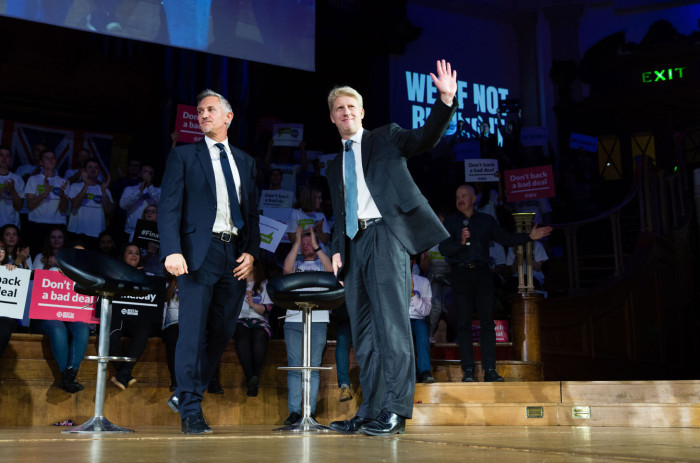
That, of course, came in part in the form of the promise on page 72 that we would hold an In-Out referendum on our membership of the EU and honour the result. Although not given a prominent place in the document, the commitment, first made in a speech Cameron gave at Bloomberg’s London headquarters in January 2013, was not just essential for party management, but a way of limiting the growing threat of Ukip. The right had been divided, to our cost in the UK’s 2014 European elections, in which Nigel Farage’s party won the largest number of seats, leaving the Conservatives trailing in third place.
The general election was expected to be close. Every policy of any significance went through a rigorous Treasury process to ensure it was properly costed and affordable in a revenue-neutral manifesto, then polled by Crosby to ensure that we didn’t blow up the campaign with a tin-eared programme. Sitting on the bus with the cabinet on the way to the launch, my nerves were jangling. Was it going to survive scrutiny? In the mid-afternoon, on my way back to London, I received a characteristically confident text message from Cameron: “Congratulations on an election-winning manifesto.” It’s always hard to tell what really makes a difference in the end, but the manifesto, including that referendum pledge, at the very least didn’t stop us securing the first Conservative majority in nearly a quarter of a century.
In the end, I think I must have spent longer working on the manifesto than it ended up being an operational programme for government. We honoured the commitment to hold the referendum, but the unexpected result of that plebiscite ended Cameron and Osborne’s project to modernise the Conservative party. I can understand why Cameron stood down when the referendum result came out — it would have been impossible for him to stay — but I miss the strategic depth and vision of Osborne, who was a tough and demanding figure to work for in government, every single day.
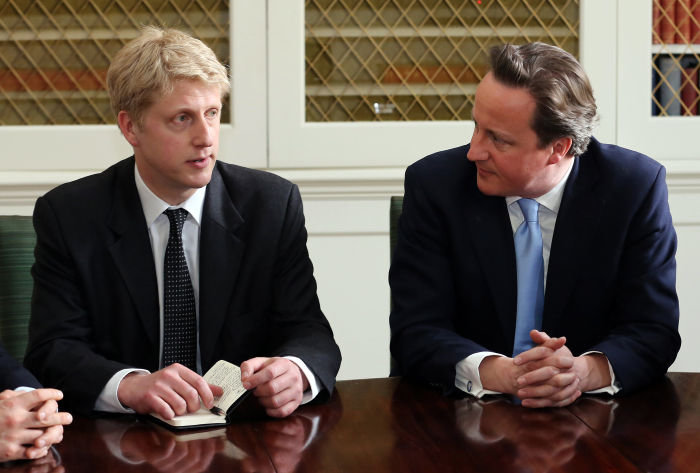
Theresa May, the party’s new leader, lost little time in distancing herself from her predecessors and the vision for the country that I had helped them set out for what was meant to have been a five-year parliament. Before long, to secure a mandate for her own priorities and to strengthen her numbers for the looming parliamentary battles over Brexit, she had called a snap general election. In a final irony, I ended up having to auction off my only hard copy of the 2015 manifesto, signed by Cameron, Osborne, May and the rest of the cabinet in Swindon, to raise funds (the tidy sum of £2,000) for the hopeless 2017 campaign that lost us the majority it had played a part in securing.
Suspension of disbelief is a necessary ingredient in all storytelling. So it has been with the government’s narrative that it is delivering Brexit. There comes a point, though, when the internal inconsistencies of a work become so glaring that the effort to stave off incredulity becomes too great for the reader and the spell is broken. For me, that moment came around the time the government published its white paper on the future relationship between the UK and the EU in the summer: an ingenious attempt to square circles, it exposed the difficulties in reconciling all the tensions and complex trade-offs that were always going to be an inherent feature of any practical attempt to deliver Brexit with the lavish vision of a Britannia Unchained set out by Brexiters in the campaign. The Chequers agreement secured collective cabinet support only briefly, before the spell broke, prompting the resignation of the two most senior Brexiters in government, the Brexit secretary David Davis and the foreign secretary, my older brother Boris.
The provisional deal that the PM put before the cabinet on Wednesday builds on those same Chequers proposals for the future relationship and has since led to the resignations of Davis’s successor, Dominic Raab, the work and pensions secretary Esther McVey and a clutch of other ministers. The government’s handling of Brexit is now in crisis mode. This reflects the growing sense that the choice being presented to the British people is in fact no choice at all.
The first option is the one the government is proposing: an agreement that will leave our country economically weakened, with no say in the EU rules it must follow and years of uncertainty for business. The second option is a “no deal” Brexit that I, as transport minister — a role to which I moved at the start of this year — came to see would inflict serious damage on our economy. As I told Theresa May by letter and the chief whip by telephone when I resigned last week, to present the nation with a choice between two deeply unattractive outcomes, vassalage and chaos, is a failure of British statecraft on a scale unseen since the Suez crisis. My constituents in Orpington deserve better than this from their government.
The gulf between the deal and the promises made two years ago is unbridgeable. Nick Timothy, who was May’s joint chief of staff and principal ideas man, on Wednesday labelled the deal a “capitulation”. In contrast to all assurances, there is no deal at all on our future trading relationship with the EU for the prime minister to show the nation. Much less anything that holds out the “exact same benefits” as the single market, as David Davis pledged, or the “precise guarantees of frictionless trade” that May herself said would be obtainable. All that is now being concluded is the contract to pay the EU tens of billions of pounds.
Even if we do at some point nail down a customs arrangement for trade in goods, we’re fundamentally a service economy and we’ll see companies in finance, in IT, in communications and in digital technology suffer a loss of access to their biggest market. I know how many Orpington residents, who commute into the centre of London to jobs of all kinds in the City, will be affected by these changes. Our global competitors will lose no time in attracting financial and professional services jobs from our shores.

While we wait to settle trading terms, the rules of the game will be set by the EU alone. The UK will lose its voice in the EU’s decision-making structures and its ability to amend or vote down rules. Far from “taking back control”, we will cede control to others across Europe. This is why the deal makes a mockery of Brexit.
Jacob Rees-Mogg, chair of the Brexit-supporting European Research Group of MPs, who on Thursday joined several others in calling for a vote of no-confidence in Theresa May, has gone as far as to say it will mean Britain will be a “colony” and “slave state” of the EU. This is strong stuff for a courteous man. The anger is not synthetic. When we were told that Brexit meant taking back powers for parliament, no one told my constituents this meant foreign parliaments and the European Parliament, not Westminster. So what are we achieving?
The proposed withdrawal agreement punts the biggest issues about our future relationship with Europe into a never-ending transition period. As Raab’s departure this week underscores, this is a con on the British people: there is no evidence that the sunny uplands Brexit that has failed to materialise while we are still members can be magically agreed once the UK loses its leverage as a full member of the EU. We will be in a far worse negotiating position than we are today. And we will have still failed to resolve the fundamental questions that are ramping up uncertainties for businesses. This is why alternatives to no deal mooted by some in parliament — such as “Norway for Now”, which would involve requesting temporary membership of the single market through the European Free Trade Association and European Economic Area while negotiating a much-harder Brexit for the longer term — are such a dangerous distraction.
My oldest brother Boris, one of the leaders of the Leave campaign, recently observed that the proposed arrangements were “substantially worse than staying in the EU”. Iain Dale, a leading Conservative commentator, wrote in despair this week that the deal was “so damaging to our country both in the short and long term that if I had to make a choice between voting for this deal or remaining in the European Union, I’d do the latter”. They are both influential thinkers in the party and they are both unquestionably right. It is striking that the argument that the government will present for the withdrawal agreement “deal” is not that it is better for Britain than our current membership.
My own work at the Department for Transport has given me a sense of the chaos that could follow a “no deal” Brexit. There are questions about how we will be able to guarantee access to fresh food and medicine if the crucial Dover-Calais trade route is clogged up. The prospect of Kent becoming the lorry park of England is very real in a no-deal scenario.
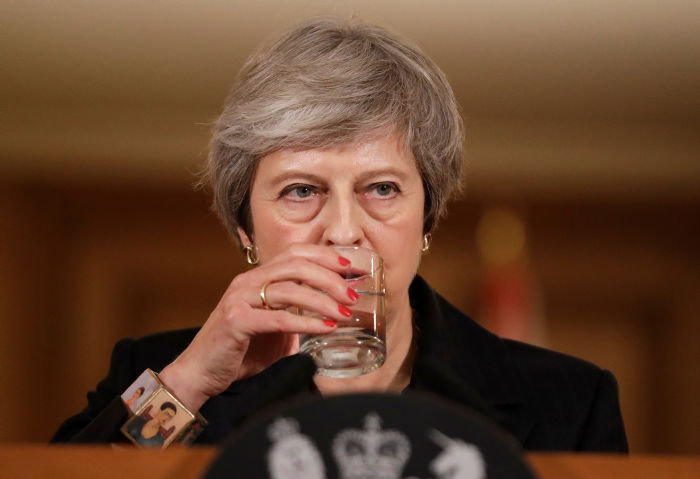
Nonetheless, I believe it would be a grave mistake for the government to ram through this deal by once again unleashing Project Fear, which backfired the first time round during the 2016 referendum. A “no deal” outcome may well be better than the never-ending purgatory the prime minister is offering the country. But my message to all Leave campaigners is that inflicting such serious economic and political harm on the country will leave an ineradicable impression of incompetence in the minds of the public. It cannot be what you wanted, nor did the referendum provide any mandate for it. For May to maintain that we’re delivering Brexit when we’re actually giving away control will gravely erode trust in politics and imperil the future of the Conservative party.
It’s not easy resigning. No one gives away hard-won ministerial roles lightly or relishes the abrupt separations that it involves. My policy adviser was in the middle of sending a message the afternoon I resigned when her entire mobile email system was remotely deleted. She will lose her job too. I will miss the opportunity to steer government policy in areas of great importance to my constituents. In thousands of votes since I became an MP in 2010, I’ve never rebelled. It will be traumatic, if it comes to it, to go through a different division lobby from my longstanding colleagues, with whom I’ve stood shoulder-to- shoulder on all issues up until this moment. But like so many other loyal Conservatives wrestling with their consciences across parliament, I have been put in an impossible position.
There is a way out, of course. The democratic and politically sensible thing to do is to release us from the shackles of the referendum result and give the public the final say. Things have moved on palpably since June 2016. This would not be about re-running that referendum, but about asking people whether they want to go ahead with Brexit on these terms now that we know the exact nature of the deal that is actually available to us, whether we should leave without any deal at all or whether people on balance would rather stick with the deal we already have inside the EU. To those who say that is an affront to democracy given the 2016 result, I ask this: is it more democratic to rely on a three-year-old vote based on what an idealised Brexit might offer, or to have a vote based on what we know it does actually entail?
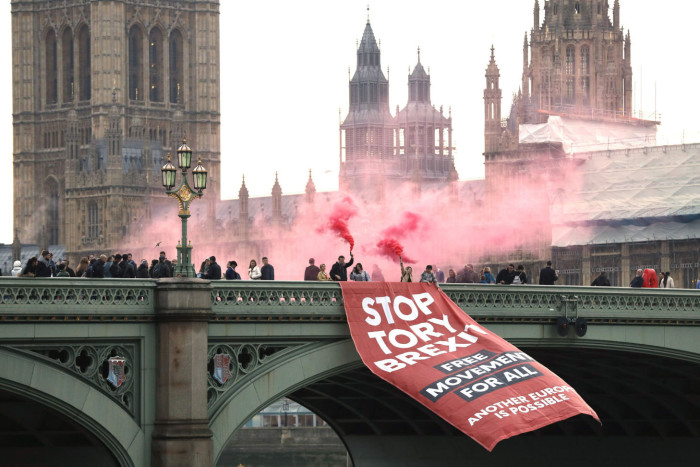
Brexit was a big decision. It has failed as a project, Nick Timothy says, because British negotiators, including May, never believed Brexit could be a success. It’s true, she never carried the conviction of the Brexiters or spent enough time talking to colleagues to take them with her. Leadership involves building an esprit de corps, the creation of a sense of purpose in pursuit of noble and clear objectives. But it’s not clear whether the campaign promises could ever have been delivered in reality, even by the most fervent of believers. The result is that many MPs instead feel trapped and disheartened, compelled to support a Brexit deal that is against the national interest, all the time knowing that the human brainpower expended on this process could be better deployed on Britain’s real problems: our housing crisis, our poor social mobility, our poor productivity.
The Brexit vote was of course a symptom of these underlying problems, of an economy that’s not working for everyone, but, by making us poorer in a self-defeating and bungled pursuit of sovereignty, it will also end up making them more intractable. We need to confront our real problems, not indulge in false solutions that make them worse. I hope, for our country’s sake, that others come to the same conclusion I’ve reached before it is too late.
Jo Johnson is MP for Orpington
Follow @FTLifeArts on Twitter to find out about our latest stories first. Subscribe to FT Life on YouTube for the latest FT Weekend videos
Letters in response to this article:
We will be consigning ourselves to the second tier of world nations / From RC Wright, London, UK
Our craven MPs are too frightened of the whips / From Devra Wiseman, Leatherhead, Surrey, UK
All the Brexit legislation was meekly nodded through / From Giles Dixon, Richmond-upon-Thames, Surrey, UK
Comments